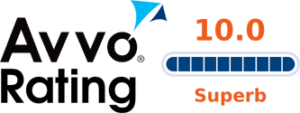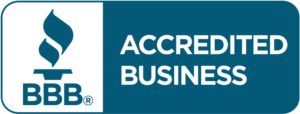
When the debts have piled up so high that they are starting to overwhelm you and calls from creditors are interfering with your daily life, it may be time to consider the option of filing for bankruptcy. However, the word “bankruptcy” can be a scary word to many people. No doubt, you’ve got many questions. Speaking with a New York bankruptcy lawyer can help you answer many of them right away and can get you on the right track when it comes to choosing the right type of bankruptcy for you and starting the filing process.
What is the Difference Between Chapter 7 and Chapter 13?
The two main types of bankruptcy that an individual can file are Chapter 7 and Chapter 13. If you’re so overwhelmed with debt that there is no hope of paying off your creditors and you simply want to start over with a new financial beginning, Chapter 7 may be right for you. In Chapter 7 bankruptcy, your non-exempt assets are liquidated and your debts are discharged, with a few possible exceptions. If you are still able to pay off some of your debts if given more time. Also, if you are behind on your mortgage and need time to catch up, then Chapter 13 bankruptcy may be the best choice for you. In Chapter 13 bankruptcy, your debts are reorganized so that you can have more time to repay them. The mortgage arrears will be paid over 5 years in full, and the credit card debt sometimes receives only 5-10 cents on the dollar and the rest is forgiven.
What is the Bankruptcy Means Test?
The bankruptcy means test is a two-part test that is designed to evaluate whether or not you qualify for Chapter 7 bankruptcy. It is based on your average income for the past six months. If this income is less than or equal to the median household income for your state, then you are likely to qualify. If not, then you may need to file Chapter 13 bankruptcy instead. Some special circumstances besides income are taken into consideration, like a major illness, and may allow you to qualify even if your income does not meet the threshold.
What Debts Cannot Be Discharged in Bankruptcy?
There are some debts and financial obligations that cannot be discharged even in Chapter 7 bankruptcy. Alimony and child support as well as many student loans are not eligible for discharge under Chapter 7. Other debts like criminal financial penalties and recent income taxes are also not eligible.
How Can Filing For Bankruptcy Help Me?
Regardless of the type of bankruptcy you choose, there are several advantages to filing for bankruptcy. If you file for either Chapter 7 or Chapter 13 bankruptcy, your phone will finally stop ringing with calls from angry creditors and they must leave you alone. With Chapter 7 bankruptcy, you can start over again and rebuild your credit while improving your financial habits. With Chapter 13 bankruptcy, we can reorganize your debts with your creditors or mortgagors to get more time to catch up on payments and still stay in your home.
Call to Schedule a Free Consultation With a New York State Bankruptcy Lawyer Today
If you are considering filing for bankruptcy, call to schedule a free consultation with a Long Island bankruptcy attorney today. At the Law Offices of Scott R. Schneider, we will use our knowledge and experience to guide you through the filing process and get you back on track financially. We serve the towns of Long Island, Melville, Lindenhurst and surrounding Nassau and Suffolk County communities. Visit our website at https://nassaubankruptcyattorney.com or call us at (516) 433-1555 . We will give you the kind of legal advice you can rely on.



Better Business Bureau
Bankruptcy Practice Spotlight
If you are facing a possible foreclosure, I can take my two-plus decades of experience to help you save your house.

I understand how stressful the prospect of losing a house can be and am committed to working one-on- one with you to understand all details involved in your financial situation.

